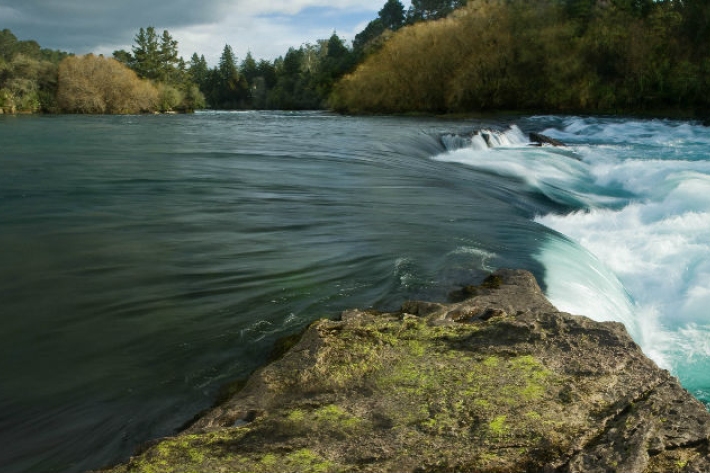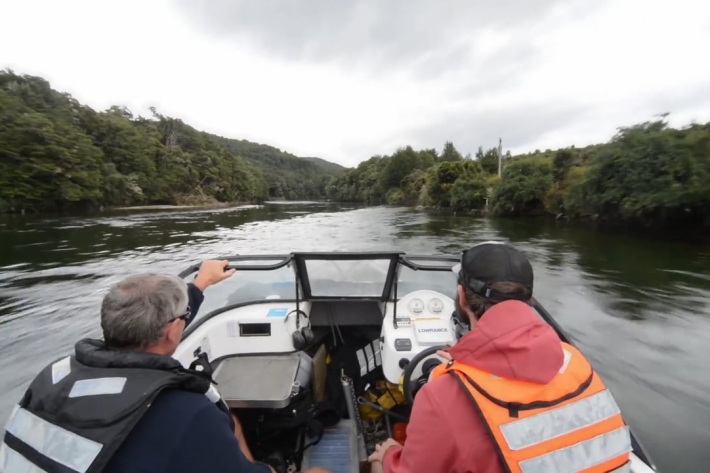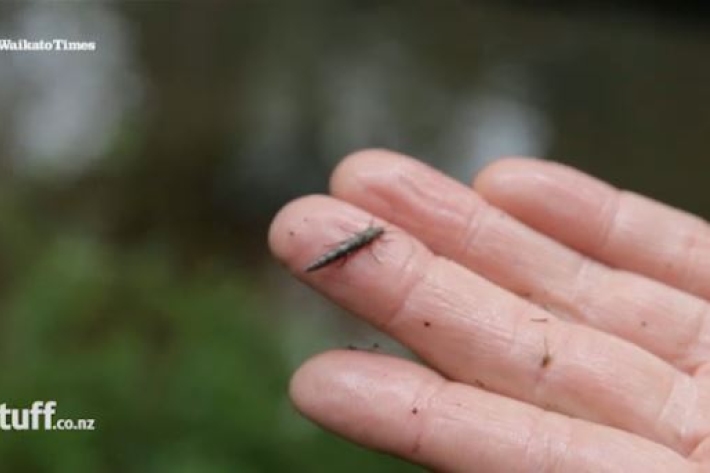-

Tau kōura sample collection and processing protocol
Tau kōura is a traditional Māori fishing method commonly used to harvest kōura or freshwater crayfish in areas where they are abundant. -

Report on Waikato and Waipa rivers sets benchmark
Media release23 March 2016A whole of catchment Report Card for the Waikato and Waipa rivers has been released by the Waikato River Authority giving the catchment an anticipated low rating for its wellbeing. -

NIWA completes first bathymetric mapping of Lake Tekapo
Media release17 March 2016NIWA researchers have spent part of the last month keeping a close eye on the bottom of Lake Tekapo to find out what it looks like and what is going on below the lake bed. -

New Zealand's best job?
NIWA environmental monitoring technicians Evan Baddock and Eric Stevens venture deep into Fiordland, NZ to monitor river and lake levels in the area. -

Recovering plants for reintroduction to Lake Ōmāpere
Research ProjectThree plants of an endemic submerged quillwort (Isoëtes) were recovered from Lake Ōmāpere by NIWA in 1998, prior to the lake weed (Egeria densa) dying off and the lake switching into an algal dominated turbid state. No further isoëtes plants have been observed in the lake since that time. -

NIWA makes a date with freshwater fish
Media release22 June 2015NIWA researchers have produced a series of calendars to inform people when New Zealand's native freshwater and sport fish are migrating and spawning. -

Freshwater fish calendars
NIWA's publication "Freshwater Fish Spawning and Migration Periods" is designed to help people working near freshwater to minimise effects of their work on freshwater fish species. -

Voyage leader's final update
Blog11 March 2015Now back on dry land, Voyage Leader Richard O'Driscoll reflects on the final days of RV Tangaroa's 2015 Antarctica expedition. -

NELSON MAIL: Blue Lake a New Zealand treasure
Media release03 March 2015Water in the Blue Lake is the clearest freshwater ever reported. -

Lake sediments reveal frequency of Hawke’s Bay quakes
News article19 February 2015An international team of scientists has analysed 7000 years’ worth of lake-bottom mud from central Hawke’s Bay to work out how often the region might expect earthquakes. -

Summer Series #5: A helping hand
News article20 January 2015Te Waihora is a special lake in need of some intensive care. Together, scientists, iwi, locals and environmentalists are pooling their knowledge and resources to make it better. -
NIWA ecologists catch on to a bug's life
News article16 December 2014Kneeling in the mud under the cover of trees, covered in anoraks, sandflies and dedication, three scientists are looking out for the little guy.


